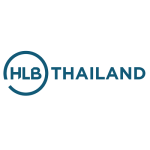In recent years, the concept of remote working has transcended traditional boundaries, offering individuals the freedom to work from virtually anywhere in the world. Employers are realising, too, that by leveraging technology, they can access talent across the globe in a hybrid working world.
Among the many destinations that have emerged as magnets for foreigners and, more recently, digital nomads, Thailand stands out as an exceptional choice. With its captivating landscapes, rich cultural heritage, and modern infrastructures, Thailand has become an attractive destination for foreign workers seeking to combine productivity and adventure.
New visa class to attract remote workers post pandemic
Thailand’s laws have traditionally been structured around more conventional work arrangements and business activities. However, that changed with the introduction of the long-term resident visa scheme, or LTR visa, in September 2022.
One of the four types of LTR visa offered is a work-from-Thailand professional visa, which aims to attract foreign workers to work remotely from Thailand, and at the same time allow them the flexibility to travel to and from the country as they wish, without the need to relocate to Thailand on a permanent basis.
To obtain an LTR visa, there are minimum income requirements to be met and the applicant must have at least five years’ work experience in a field relevant to their current employment in the last 10 years.
In addition, their foreign employer needs to be a public company listed on a stock exchange, or if it is a private company, it must have been in operation for at least three years and have total combined revenue of more than $150 million in the last three years.
Taxation of remote workers in Thailand
Under Thailand’s Revenue Code, individuals are liable to personal income tax in Thailand in respect of income received from a post held in Thailand, regardless of whether such income is paid in or outside Thailand and regardless of whether the individual is a Thai resident.
Moreover, if one is considered a tax resident of Thailand, as a result of being present in the country for a period of 180 days or more in a year, income from an employment abroad that is brought into Thailand within the same tax year would be subject to Thai income tax.
A tax exemption has been introduced for work-from-Thailand professional LTR visa holders in respect of income from an employment abroad that is brought into Thailand.
There are no guidelines on whether foreigners working remotely in Thailand for a foreign employer will be considered to have employment or a post held in Thailand, and therefore possibly be liable to tax.
Thailand has double taxation agreements (DTAs) with over 60 countries and jurisdictions, including Australia, China, France, Germany, Hong Kong, Japan, the UK, the US, and Singapore.
The general rule for the taxation of employment income under these agreements is that the income will be taxable in the country where the employment is exercised; i.e., where the employee is physically present when performing the activities for which the employment income is paid.
An exception to this rule applies if the employer is a foreign company and does not have a permanent establishment in Thailand. In such a case, the employee will not be subject to Thai tax on income from their employment performed in Thailand if they are in Thailand for less than 183 days or similar in the relevant period.
Managing risks for foreign employers
Thailand’s Revenue Department has yet to issue guidelines on the taxation of foreign employers with staff working remotely in Thailand.
The Revenue Code does not stipulate a minimum period that an employee must spend in Thailand before they could be deemed to create a taxable presence for their foreign employer.
An applicable DTA helps to provide more certainty. Under Thailand’s DTAs, in general, business income derived from activities performed in Thailand by a foreign enterprise would not be subject to Thai income tax if the enterprise does not have a taxable permanent establishment in the country.
Despite the presence of a DTA, certain ambiguities have to be considered. The concept of a ‘fixed place of business’ test, as outlined in any DTA, raises questions regarding whether an extended stay in a ‘home office’ in Thailand constitutes a sufficient degree of permanence to create a taxable presence.
The duration of the employee's presence in Thailand could also impact the potential establishment of a permanent presence. In certain situations, it might be prudent for a foreign remote worker in Thailand to limit their stay in the country to help to mitigate the risk of creating a taxable presence for their employer.
Potential tax reforms
While Thailand has made strides in accommodating remote work with its introduction of new visa categories, the government may need to consider issuing guidelines on the tax obligations of remote workers and their foreign employers, to further attract foreign professionals to choose Thailand as their base.













